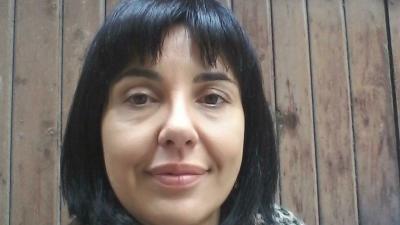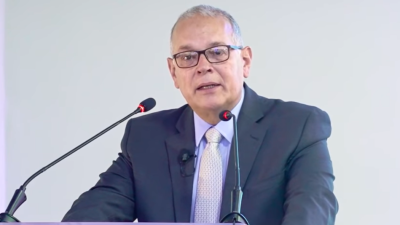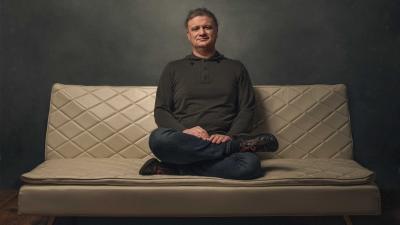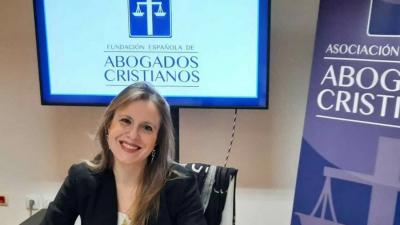“Chechnya lives under a regime of terror where dissent is not allowed”: An interview with Marta Ter Ferrer
In Chechnya there is such absolute control that opposition is impossible. Criticising Kadyrov can result in a beating, public humiliation or even having your relatives’ house burned down. The possibility of a change of power could only come from within the ruling elite itself.
Marta Ter Ferrer holds a degree in Slavic Philology and a Master’s degree in International Relations. Specialising in Russia and the Caucasus, she co-authored “Sistema mediático y propaganda en la Rusia de Putin” (Media System and Propaganda in Putin’s Russia).
We talk about her new book “La Chechenia de Kadírov. El régimen de Putin en el Cáucaso” (Kadyrov’s Chechnya. Putin’s regime in the Caucasus). The book aims to convey what it means to live under the regime of terror established by President Vladimir Putin through the local satrap, Ramzan Kadyrov.
Álvaro Peñas: Who are the Kadyrovs?
Marta Ter Ferrer: During the first Chechen war (1994-1996), in which the Kadyrovs support independence but did not take up arms, Ramzan’s father, Akhmat Kadyrov, was Mufti, the highest religious authority. In Chechnya they follow the Sufi branch of Islam, which is more mystical and tolerant, and which the jihadists consider heresy. Akhmat declared a holy war against the invader and Salafists (jihadists) who had been fighting in Bosnia came to Chechnya. This Salafism was gaining supporters among the insurgents and, in fact, they tried to kill Akhmat, which is why he considered them as much an enemy as the Russians. Their main rival was Shamil Basayev, who organised the Beslan school bombing in 2004.
When the second Chechen war began in 1999, which the Russians defined as a “special anti-terrorist operation” and lasted until 2009, the Kremlin realised that to defeat the Chechens it had to divide them. Putin handed over some political and military power to his Chechen allies, although ultimately Moscow was in charge, and turned the war, which until then had been between Russians and Chechens, into a Chechen civil war in which the different factions fought each other.
The trigger for the second Chechen war was the bombing of several apartment buildings, which killed around 300 people. Many point the finger at the Kremlin for this attack.
I am convinced that it was the work of the Russian secret services. In the same way that the Chechens took responsibility for brutal attacks like Beslan or Dubrovka, in this case they always disassociated themselves. There is a documentary film called “Disbelief” by Andrei Nekrasov that explains what happened in detail and presents enough evidence to prove that the FSB was behind the attack. But in addition to the bombings, the excuse for starting the war was a jihadist incursion into Dagestan led by Basayev and the Saudi Ibn al-Khattab to create a caliphate there.
It is important to note that jihadism was brought to Chechnya by foreign fighters who came to the first Chechen war. The 1991 constitution of the Chechen Republic explicitly separates religion from the state. It is the Russian invasion that opens the door to jihadism.
The second Chechen war was notorious for its cruelty and employed scorched earth tactics. Are there similarities with what Russia is doing in Ukraine?
Yes, the war was a succession of systematic bombings of cities and civilians. The shelling of the Grozny market which caused hundreds of deaths is sadly famous. Hospitals were also bombed. I met Khassam Baiev, writer of “The Oath”, a doctor who explained how they had to operate on the wounded while the roof shook from the explosions; he told me that he never forgave himself for having placed a sheet with a large cross on the roof of the building to indicate that this was a hospital, because from that moment on the hospital became a military target and was razed to the ground.
The Russian army’s mopping-up operations were also infamous. Soldiers would surround a town or neighbourhood for days and take all the men between the ages of 15 and 60, and sometimes also young women in case they were snipers, to a filtration point where they were tortured and beaten. If the family paid enough money, the detainees were released; in case of death, their family also had to pay to retrieve the body. According to Memorial, the main Russian human rights association that was banned by the Kremlin, tens of thousands of people passed through the filtration points (out of a Chechen population of less than one million) and more than 5,000 disappeared forever. All this was Chechnya.
While Russia does all this, the Kremlin puts the Kadyrovs in power.
Yes, the Russians put Akhmat Kadyrov in charge of the government in 2002, but on Victory Day 2004 he was assassinated in a bomb attack at the Grozny football stadium. That same day Putin meets with Ramzan and appoints him as his successor, although, as he was only 27 years old and the Chechen constitution states that the president must be at least 30 years old, he served as prime minister until 2007 and was appointed president when he turned 30.
Since then, Chechnya has had no sovereignty.
No, it is a dependent territory of Moscow and is one of the republics of the Russian Federation, but unlike the others, where governors change over time, Kadyrov has been in power since 2007 and has a very close relationship with Putin. Kadyrov receives a lot of money from Moscow in exchange for keeping Chechnya under control and being subservient to the Kremlin.
Is it a regime in the hands of a family clan?
I would define it as a dictatorship with totalitarian features and some analysts have compared it to Stalinism. There is a strong cult of personality and in Chechnya you find posters everywhere with the face of Ramzan, his father and Putin. All areas of life are controlled by the state: religion, sport, work and so on. One of the latest news coming out of Chechnya is that very fast or slow music will be considered extremist; to that point of madness the population is controlled. “Honour” crimes are also common. Homosexuals, drug addicts or alcoholics are returned to their families after arrest and, in many cases, killed by their relatives because they are considered a disgrace to their clan. Chechnya lives under a regime of terror where dissent is not allowed and anyone who dares to disagree with the regime’s goodness can be arrested, tortured in a secret prison, disappeared or executed. This is the order of the day.
As for the family clan, Kadyrov has placed fifty of his relatives in positions of power, both in ministries and in oil-related public companies. It is a way of controlling all the levers of power, but let’s not kid ourselves, if the rumours that Ramzan is ill are true and he has to leave power, his replacement will be appointed by Moscow.
When the invasion of Ukraine began, Kadyrov sent troops to support Russia after a rather Hollywood-like staging. Things have not gone as expected and there is less enthusiasm for participating in the war, and there are even “Chechen” units that are actually made up of Russians.
At the start of the invasion, Ramzan assembled some 10,000 fighters who left in three columns for Ukraine. The same thing happened to them as to the Russians, who thought it was going to be a military parade and were met with unexpected Ukrainian resistance. One of these columns was destroyed in a matter of days and the rest took part in the capture of Mariupol and little else. In fact, many jokes are made about these forces, which are referred to as the “Tik Tok army” because they are more concerned with making propaganda videos than fighting.
There are several battalions of ethnic Chechens, but then there is an Ajmat special forces unit that is made up of volunteers from all over Russia who do a fortnight’s training at the “Russian University of Special Forces”, which is in Chechnya. They are passed off as Chechens, although less than 15 per cent of them are, but this serves to present Kadyrov as a major supplier of soldiers to the front.
There are also Chechens on the Ukrainian side, but they come from exile. Is there any opposition inside Chechnya?
No. The Chechens fighting with Ukraine, the “Dzhojar Dudayev” battalion or the “Sheikh Mansur” battalion, come from exile and the diaspora, many of them from Denmark. In Chechnya there is such absolute control that opposition is impossible. Criticising Kadyrov can result in a beating, public humiliation or even having your relatives’ house burned down. The possibility of a change of power could only come from within the ruling elite itself.
Why are you interested in Chechnya?
I studied Slavic philology and in 1998 I had a scholarship to study in Russia. In 1999 I started working at Antena 3 with Ricardo Ortega, the journalist who knew and travelled the most to Chechnya. Seeing what was happening in the war awakened in me an interest that I have maintained until now and for that reason I have travelled to Chechnya on several occasions and investigated everything that is happening there.
Read also
Alejandro Peña Esclusa: “Classical art is a way of evangelising through beauty”
Interview with Alejandro Peña Esclusa, engineer, writer, analyst and political consultant.
Álvaro Peñas
Keep voting wrong
In January 2022, a month before the Russian invasion of Ukraine, MEP Esteban Gonzalez Pons, Vice-President of the European People’s Party, made what were probably the most regrettable – though honest – statements of his career.
Álvaro Peñas
Interview with Miguel Ángel Quintana Paz: "More and more people who are dissatisfied with the world realise that Catholicism has the tools to face today’s challenges".
Miguel Ángel Quintana Paz. Academic Director of the Higher Institute of Sociology, Economy and Politics (ISSEP) in Madrid. Professor at the postgraduate program “Expertise in Social Communications” at the Pontifical University of Salamanca.
Álvaro Peñas
“When it is allowed to humiliate a collective, such as Catholics, the next step is to persecute that collective”: An Interview with Polonia Castellanos
Polonia Castellanos is the president of Christian Lawyers. An international civil association that defends in the legal sphere the values inspired by Christianity: religious freedom, life and family.














Comments (0)